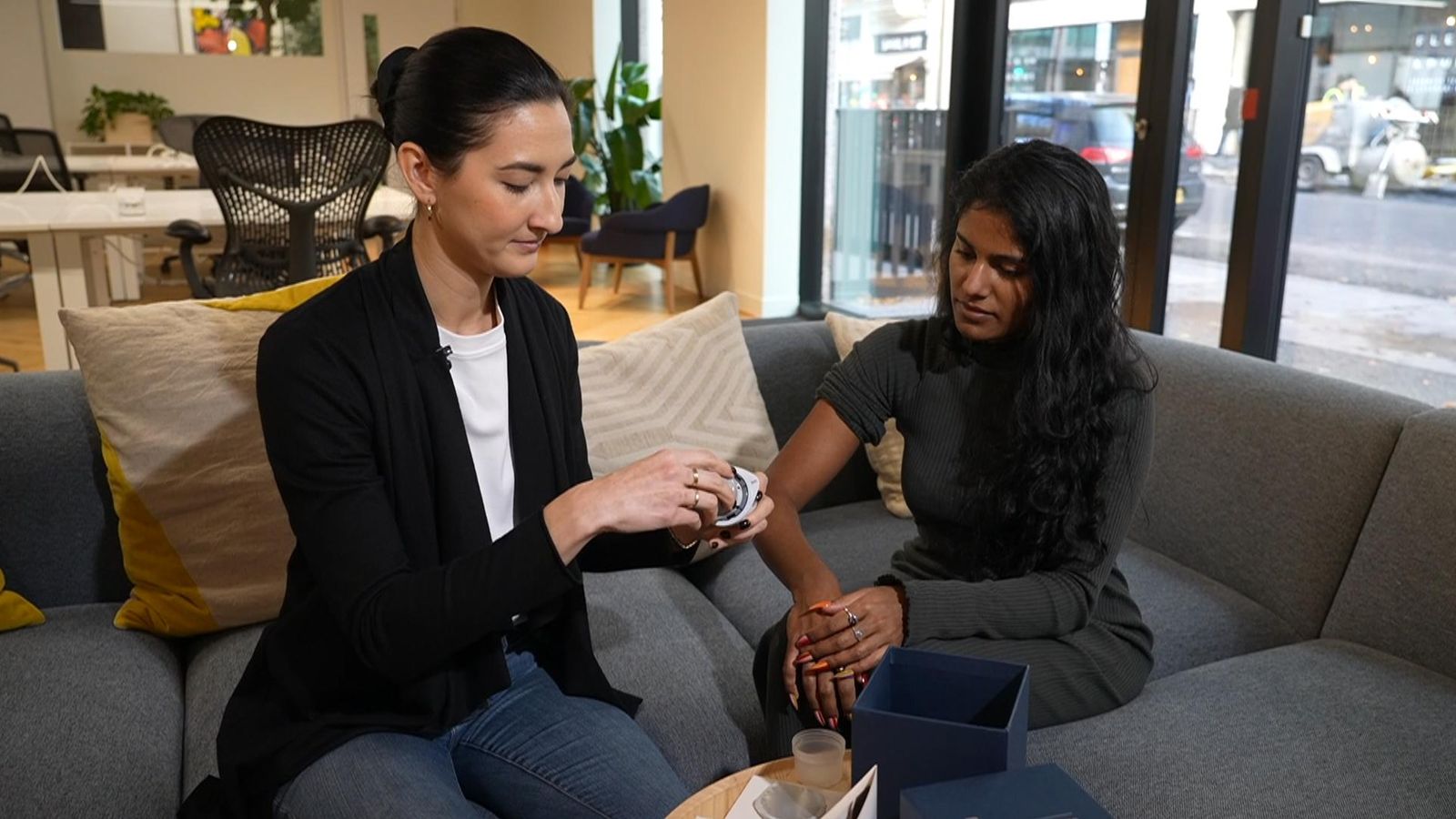Wearable blood sugar monitors have been life-saving for people with diabetes. Now, some companies are trying to repurpose them as a health tool for everyone.
The growth in popularity of the monitors among people without the condition has accelerated in recent years.
Zoe, a company selling the monitors in the UK, had more than 200,000 people on their waiting list in 2022 and currently has more than 100,000 users.
Lingo, which was launched in 2023, is a wearable device for non-diabetics, produced by Abbott, the American pharmaceutical company behind the world’s most-used glucose monitor for diabetes.
But access to the data comes at a cost.
Lingo users pay around £300 for two months to receive suggestions for their eating and exercise, such as which foods to eat and in what order, based on their body’s reaction to different foods.
Zoe users pay around £25-£60 a month after an upfront cost of just under £300.
World-first trial finds arthritis drug may help treat type 1 diabetes
Two servings of red meat a week can increase Type 2 diabetes risk
Short voice recordings can be used to test people for diabetes, study finds
Sarah Tan, Lingo’s general manager for Europe, said: “The way it works is you have the biosensor on your arm, it transmits your glucose levels in real time to your smartphone, and then you get small tips and insights as to how you can make small changes to your every day and create long-lasting habits so that you can feel better, have more energy, improved mood.”
The aim of tracking your blood sugar levels is to limit “spikes”, which can happen after eating foods dense in sugar or carbohydrates, a lack of physical activity or several other factors.
For people living with diabetes – a condition that causes blood sugar levels to become too high – the monitors help them track and manage their blood glucose.
But the use of the monitors, in an effort to control the metabolism and overall health for people without diabetes, has raised concern among some doctors.
Dr Shivani Misra, a diabetes consultant at Imperial College London, said: “By overly focusing on one aspect of your metabolism, i.e. glucose, an individual might be neglecting all of the other aspects of their metabolism and health.”
She added: “For example, blood pressure, cholesterol levels or weight – or there are so many other things that incorporate how we feel about our health.”
Read more:
World-first trial finds arthritis drug may help treat diabetes
How thousands of diabetes cases could be diagnosed
Be the first to get Breaking News
Install the Sky News app for free
A spokesperson for Lingo said glucose is currently the only metabolic marker that can be tracked in real time but the company is working on incorporating others into its products.
The firm said: “Lingo has a product pipeline of other metabolic markers including ketones and lactate that are incredibly informative for tracking nutritional ketosis, fasting, exercise intensity and fitness.”
A representative for Zoe said the monitor measures blood glucose, blood fat, gut microbiome composition, diet quality and personal history.
They said: “We use all of these measures to provide personalised advice which we have shown improves many measures of health in our randomised controlled trial.”
They added that Zoe would advocate more research into whether wearing continuous glucose monitors can improve the health of people without diabetes.







